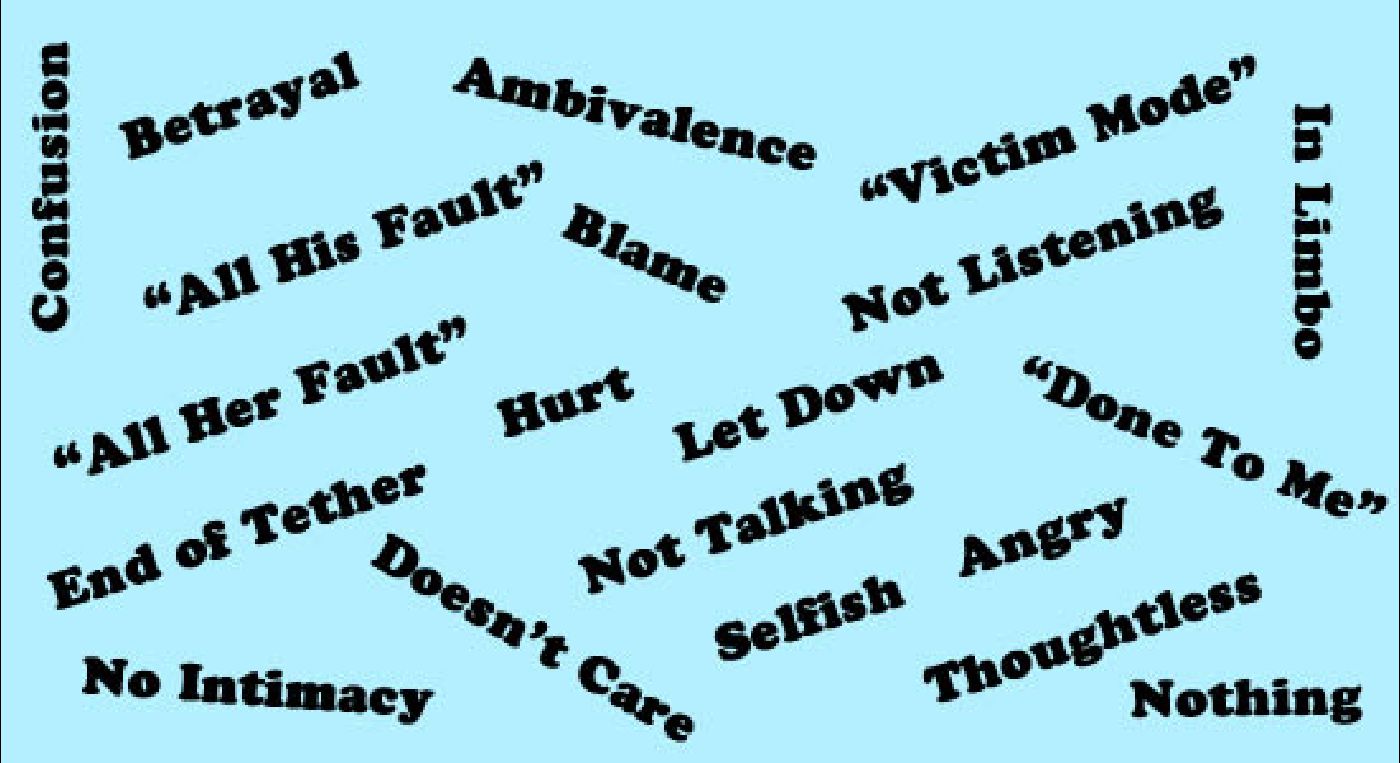The amendments extend the definition and examples of economic and financial abuse. (The terms “family violence” and “domestic violence” are interchangeable.* )
For the first time under the FLA, companion animals are also expressly included in the legislation, including “any history of actual or threatened cruelty or abuse by a party towards the companion animal”.
These amendments continue a trend in recent years, whereby Family / domestic violence has become of central importance to Family Law in Australia.
Not so long ago, one parent alleging family violence by the other risked being considered in breach of a duty to encourage the relationship between children and that other parent. Family violence was of relevance only in “exceptional” property cases (Kennon [1997] FamCA 27.
The change started in 2012, when reforms to the Family Law Act introduced the need to protect children from Family Violence. This was reinforced and made more explicit in in May 2024 with further amendments governing parenting decisions (see my Blog from July 2024 Separation Divorce and Children – A New Family Law? )
Two of the central pillars of the new amendments are contained in sections 79(4) and 79(5) of the Family Law Act. Section 79(4)(ca) requires the court (and therefore lawyers and others negotiating a property settlement) to take into account the effect of family violence on a party’s ability to make contributions to the acquisition, improvement or maintenance of property owned by either or both of the parties or to the welfare of the family. Section 79(5) also requires the effect of family violence to be taken into account when considering the current and future circumstances of a party to the marriage. (There are very similar provisions in relation to de facto relationships).
Just how momentous these changes will be in practice remains to be seen, but they have the potential to revolutionise the approach to resolving family law cases, whether in Court or by negotiation.
Many people have the mistaken belief that “family violence” refers only to physical behaviours. When I ask clients about family violence, the response is frequently “oh but he never hit me” or “I never touched her” thinking that means there was no family violence in the relationship.
In fact, “family violence” refers to a whole range of behaviours that coerce, control or frighten a family member.
People often don’t realise there has been family violence where, for example, there has been constant denigration, belittling or verbal abuse of family members or where one person forcibly controls the family finances to the exclusion of the other or accumulates debt in the other party’s name, without their knowledge or consent. (See the full definition and examples of family violence as set out in Section 4AB of the Family Law Act set out at the end of this blog.) Cultural practices and traditions are no excuse; if the behaviour fits the definition of family violence, then family violence it is.
In the case Pickford ([2024] FedCFamC1A 249 (20 December 2024) the Full Court of the Federal Circuit and Family Court of Australia ruled that the definition of family violence in Section 4AB must be interpreted broadly and is not limited either to situations where the behaviour has caused fear or where the behaviour can be described as coercive and controlling. The court emphasised that the context in which the behaviour takes place is also significant. It will often, but not always, be made up of several incidents (which may, taken in isolation, seem unimportant or trivial). McClelland DCJ stated:
” The key to determining whether a person has been the subject of such behaviours is an appreciation of a pattern or a series of acts, the impact of which will usually be both intersecting and cumulative, rather than incident specific.”
The examination of family violence in any Family Law matter is not about punishing the perpetrator (the Family Law is strictly a “no fault” jurisdiction). Family violence in the Family Law Act is not about the perpetrator. It is about behaviours; considering and determining the actual impact and consequences of particular behaviours on other family members in any given situation. As the full court has stated in Pickford:
“The focus of the fact-finding process is on the behaviour and the impact of the behaviour. It is the behaviour that coerces or controls. It requires action and reaction. A single act is unlikely to be coercive or controlling but it may be. Behaviour that coerces or controls may be innocuous, subtle, capable of different interpretations, complex, undermining, etc. Such behaviour may create impossible expectations for the other family member. It may be transactional and involve punishments for perceived failures. The impact of the behaviour can be insidious. A confident and happy family member may lose their confidence, their self-esteem, question their sanity, shun their family and friends, become depressed, irritable, inefficient, and unhappy. There may be times when they strike out either verbally or physically.” (emphasis added).
It is not necessary to prove that the perpetrator of the family violence intended the violence or that they intended the outcome of the violence. The question for the court is whether or not there was family violence perpetrated. If so, consideration then has to be given as to whether there should be court orders that flow from the circumstance of family violence. (I will examine these issues in greater depth in future blogs.)
Similarly, the Family Law Act is neutral about gender; family violence can be perpetrated by men and women and sometimes both parties in a relationship will be perpetrators.
The legal effect and real-world consequence of a court making a finding that family violence has been perpetrated in a particular matter will depend on what orders each party is seeking. For example, in cases about parenting orders, the presence of family violence will not necessarily mean that the children do not see the perpetrating parent, but it may mean that the court places conditions and safeguards around the circumstances or situations in which that occurs. There are cases where family violence has occurred, but the court considers it unlikely to occur or to further impact the children in future, for example because the parties are no longer in the reactive “pressure cooker” atmosphere of the relationship.
Family violence permeates other sections of the Family Law Act as well. For example, there is a general principle imposed that the court must consider “the need to ensure protection from family violence” (Section 43(ca)), Family Violence is included in matters the court must consider in determining spousal maintenance (section 75(2)(aa), at the start of court proceedings about children, each party must file a specific “Notice of Family Violence and Abuse” (Section 67Z) and there is protection for victims/survivors of family violence from being cross-examined directly by a self-representing perpetrator (Section 102NA).
This is an evolving area of the Family Law, particularly in its impact upon property settlements.
The important thing to remember is that family violence is now a matter that must be considered by the court and is likely to have consequences in a large number of cases. Family violence has gone from being relegated to an embarrassing matter only relevant in exceptional matters to being recognised as the widespread problem it is in our culture.
It will however be the “same old story” that we have in Family Law, that every case is different and will depend on the actual facts and circumstances of the relationship before the court.
Section 4AB FAMILY LAW ACT – Definition of Family Violence
(1) For the purposes of this Act, family violence means violent, threatening or other behaviour by a person that coerces or controls a member of the person’s family (the family member) or causes the family member to be fearful.
(2) Examples of behaviour that may constitute family violence include (but are not limited to):
(a) an assault; or
(b) a sexual assault or other sexually abusive behaviour; or
(c) stalking; or
(d) repeated derogatory taunts; or
(e) intentionally damaging or destroying property; or
(f) intentionally causing death or injury to an animal; or
(g) economic or financial abuse; or
(I) preventing the family member from making or keeping connections with his or her family, friends or culture; or
(j) unlawfully depriving the family member, or any member of the family member’s family, of his or her liberty.
(2A) For the purposes of paragraph (2)(g), examples of behaviour that might constitute economic or financial abuse of a family member include (but are not limited to) the following:
(a) unreasonably denying the family member the financial autonomy that the family member would otherwise have had, such as by:
(i) forcibly controlling the family member’s money or assets, including superannuation; or
(ii) sabotaging the family member’s employment or income or potential employment or income; or
(iii) forcing the family member to take on a financial or legal liability, or status; or
(iv) forcibly or without the family member’s knowledge, accumulating debt in the family member’s name;
(b) unreasonably withholding financial support needed to meet the reasonable living expenses of the family member, or the family member’s child (including at a time when the family member is entirely or predominantly dependent on the person for financial support);
(c) coercing a family member (including by use of threats, physical abuse or emotional or psychological abuse):
(i) to give or seek money, assets or other items as dowry; or
(ii) to do or agree to things in connection with a practice of dowry;
(d) hiding or falsely denying things done or agreed to by the family member, including hiding or falsely denying the receipt of money, assets or other items, in connection with a practice of dowry.
(3) For the purposes of this Act, a child is exposed to family violence if the child sees or hears family violence or otherwise experiences the effects of family violence.
(4) Examples of situations that may constitute a child being exposed to family violence include (but are not limited to) the child:
(a) overhearing threats of death or personal injury by a member of the child’s family towards another member of the child’s family; or
(b) seeing or hearing an assault of a member of the child’s family by another member of the child’s family; or
(c) comforting or providing assistance to a member of the child’s family who has been assaulted by another member of the child’s family; or
(d) cleaning up a site after a member of the child’s family has intentionally damaged property of another member of the child’s family; or
(e) being present when police or ambulance officers attend an incident involving the assault of a member of the child’s family by another member of the child’s family.
* The term “domestic violence” has been around for much longer and is increasingly being replaced with the term “family violence”. In this blog, I will use the term “family violence” as that is the term used in the Family Law Act which is federal legislation, concerned with disputes between married or de facto couples relating to their children or property and financial issues.

